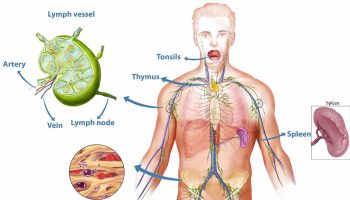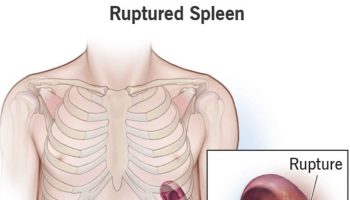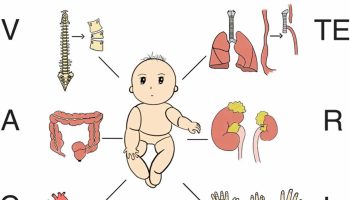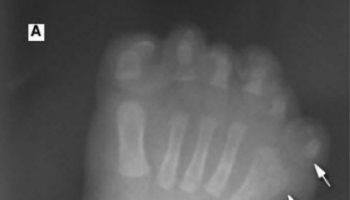Contents
What is rumination disorder
Rumination disorder is a condition in which a person keeps bringing up food from the stomach into the mouth (regurgitation) and rechewing the food and then either reswallow it or spit it out. Rumination disorder is relatively common in infants and mentally handicapped persons, but also occurs in persons with normal intelligence. Because the food hasn’t yet been digested, it reportedly tastes normal and isn’t acidic, as vomit is. Rumination typically happens at every meal, soon after eating.
Rumination disorder is sometimes confused with bulimia nervosa, gastroesophageal reflux disease (GERD), and upper gastrointestinal motility disorders such as gastroparesis or chronic intestinal pseudo-obstruction.
Rumination disorder symptoms include:
- Repeatedly bringing up (regurgitating) food
- Repeatedly re-chewing food
Symptoms must go on for at least 1 month to fit the definition of rumination disorder.
People do not appear to be upset, retching, or disgusted when they bring up food. Bringing up food from the stomach into the mouth (regurgitation) and rechewing the food may appear to cause pleasure.
It’s not clear how many people have rumination disorder.
Treatment may include behavioral therapy or medications. Behavioral therapy that involves teaching people to breathe from the diaphragm is the usual treatment of choice. One treatment associates bad consequences with rumination and good consequences with more appropriate behavior (mild aversive training). Other techniques include improving the environment (if there is abuse or neglect) and counseling the parents.
Rumination disorder causes
The precise cause of rumination disorder isn’t clear. But it appears to be caused by an increase in abdominal pressure. Rumination disorder most often starts after age 3 months, following a period of normal digestion. Rumination disorder occurs in infants and is rare in children and teenagers. Certain problems, such as lack of stimulation of the infant, neglect, and high-stress family situations, have been linked with rumination disorder. Rumination disorder may also occur in adults.
Rumination disorder has long been known to occur in infants and people with developmental disabilities. It’s now clear that rumination disorder isn’t related to age, as it can occur in children, teens and adults. Rumination disorder is more likely to occur in people with anxiety, depression or other psychiatric disorders.
Rumination disorder is frequently confused with bulimia nervosa, gastroesophageal reflux disease (GERD) and gastroparesis. Some people have rumination disorder and linked to rectal evacuation disorder, in which poor coordination of pelvic floor muscles leads to chronic constipation.
Rumination disorder symptoms
Rumination disorder symptoms include:
- Repeatedly bringing up (effortless regurgitating) food, typically within 10 minutes of eating
- Repeatedly re-chewing food
- Abdominal pain or pressure relieved by regurgitation
- A feeling of fullness
- Bad breath
- Nausea
- Unintentional weight loss
Symptoms must go on for at least 1 month to fit the definition of rumination disorder.
People do not appear to be upset, no retching, or disgusted when they bring up food. It may appear to cause pleasure.
Rumination disorder possible complications
Untreated, rumination disorder can damage the tube between your mouth and stomach (esophagus).
Rumination disorder complications may include:
- Failure to thrive
- Lowered resistance to disease
- Malnutrition
- Unhealthy weight loss
- Dental erosion
- Bad breath
- Embarrassment
- Social isolation
Rumination disorder diagnosis
The doctor will ask about your or your child’s current symptoms and medical history. An initial examination, and sometimes observation of behavior, is often enough to diagnose rumination disorder.
Sometimes high-resolution esophageal manometry and impedance measurement are used to confirm the diagnosis. This testing shows whether there is increased pressure in the abdomen. It can also provide an image of the disordered function for use in behavioral therapy.
Other tests that may be used to rule out other possible causes of your or your child’s symptoms include:
- Esophagogastroduodenoscopy. This test allows your doctor to inspect the esophagus, stomach and upper part of your small intestine (duodenum) to rule out any obstruction. The doctor may remove a small tissue sample (biopsy) for further study.
- Gastric emptying. This procedure lets the doctor know how long it takes food to empty from your stomach. Another version of this test can also measure how long it takes food to travel through the small intestine and colon.
Rumination disorder can cause malnutrition. The following lab tests can measure how severe the malnutrition is and determine what nutrients need to be increased:
- Blood test for anemia
- Endocrine hormone functions
- Serum electrolytes
These criteria must be met for the last 3 months, with symptoms beginning at least 6 months prior to diagnosis 1:
- Repeated regurgitation and rechewing or expulsion of food that:
- a. Begins soon after eating
- b. Does not occur during sleep
- c. Does not respond to standard treatment for GERD
- No Retching
- Symptoms are not explained by inflammatory, anatomic, metabolic, or neoplastic processes
These criteria help distinguish rumination syndrome from other disorders of the gastrointestinal tract, such as gastroparesis and achalasia where vomiting occurs hours after eating, gastroesophageal reflux where symptoms occur at night, and cyclic vomiting syndrome where the symptoms are chronic/persistent 1.
Rumination disorder treatment
Treatment depends on the exclusion of other disorders, as well as on age and cognitive ability.
Behavior therapy
Habit reversal behavior therapy is used to treat people without developmental disabilities who have rumination disorder. People learn to recognize when rumination occurs and to breathe in and out using the abdominal muscles (diaphragmatic breathing) during those times. Diaphragmatic breathing prevents abdominal contractions and regurgitation.
Biofeedback is part of behavioral therapy for rumination disorder. During biofeedback, imaging can help you or your child learn diaphragmatic breathing skills to counteract regurgitation.
For infants, treatment usually focuses on working with parents or caregivers to change the infant’s environment and behavior.
Medication
If frequent rumination is damaging the esophagus, proton pump inhibitors such as esomeprazole (Nexium) or omeprazole (Prilosec) may be prescribed. These medications can protect the lining of the esophagus until behavior therapy reduces the frequency and severity of regurgitation.
Some people with rumination disorder may benefit from treatment with medication that helps relax the stomach in the period after eating.
Rumination disorder prognosis
In some cases, rumination disorder will disappear on its own, and the child will go back to eating normally without treatment. In other cases, treatment is needed.





